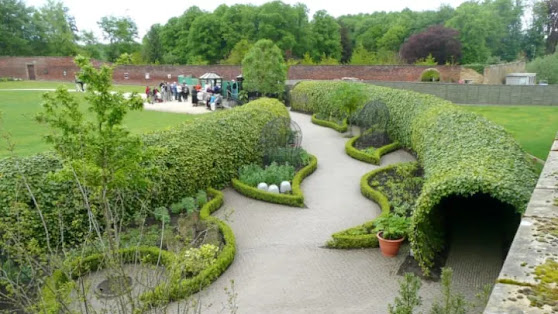Step Inside the world's Deadly Poison Garden in England

The Poison Garden at England’s Alnwick Garden is beautiful—and filled with plants that can kill you.
Agarden in England’s Northumberland is termed as the world’s “deadliest” garden. It is a small part of The Alnwick Garden. Commonly known as The Poison Garden, the world’s deadliest garden got its name after becoming home to more than 100 varieties of toxic and narcotic plants.
As per a recent BBC report, the garden came up in 2005 after it was envisioned by the Dutchess of Northumberland, Jane Percy. This is after the Dutchess reportedly hired a notable landscape architect of the French Tuileries, Jacques Wirtz to give an unconventional transformation to the Christmas tree-laden stretch.

Because of the plants' dangerous qualities, visitors to the Poison Garden are prohibited from smelling, touching or tasting any of them. Still, even with guidelines in place, visitors can fall victim to the plants. This past summer, seven people reportedly fainted from inhaling toxic fumes while walking through the garden. "People think we're being overdramatic when we talk about [not smelling the plants], but I've seen the health and safety reports," the duchess says.
As part of the Poison Garden's educational mission, the duchess grows a variety of drugs, from cannabis to cocaine (derived from the leaves of the coca plant), which she and garden guides use as a jumping-off point for drug education. "It's a way of educating children without having them realize they're being educated," she says.

Other poisonous plants might be less well-known to visitors, but are no less potent. One of the duchess's favorite plants is Brugmansia, or angel's trumpet, a member of the Solanaceae family (which includes deadly nightshade) that grows in the wild in South America. "It's an amazing aphrodisiac before it kills you," she says, explaining that Victorian ladies would often keep a flower from the plant on their card tables and add small amounts of its pollen to their tea to incite an LSD-like trip. "[Angel's trumpet] is an amazing way to die because it's quite pain-free," the duchess says. "A great killer is usually an incredible aphrodisiac."
Whether a plant kills with pleasure or with pain, visitors can count on walking away from the Poison Garden with an entertaining anecdote. "Most plants that kill are quite interesting," says the duchess.

Despite being poisonous, several plants in the garden are reportedly used in curing some of the most untreatable illnesses. Like the yew tree that is well known for its poison called taxine, which is powerful enough to kill someone in a matter of 20 minutes. However, rarely you have been informed that it also produces taxol, which is a medicine and is extremely helpful in treating breast cancer.


Post a Comment
Please do not enter any SPAM link in comment box.